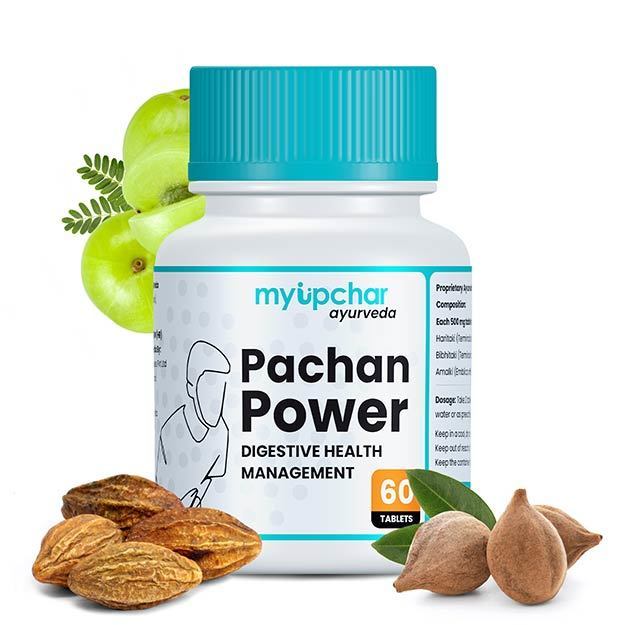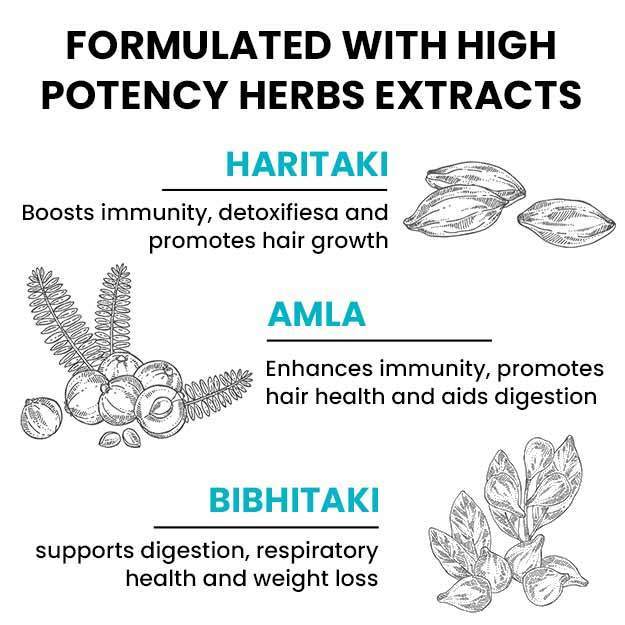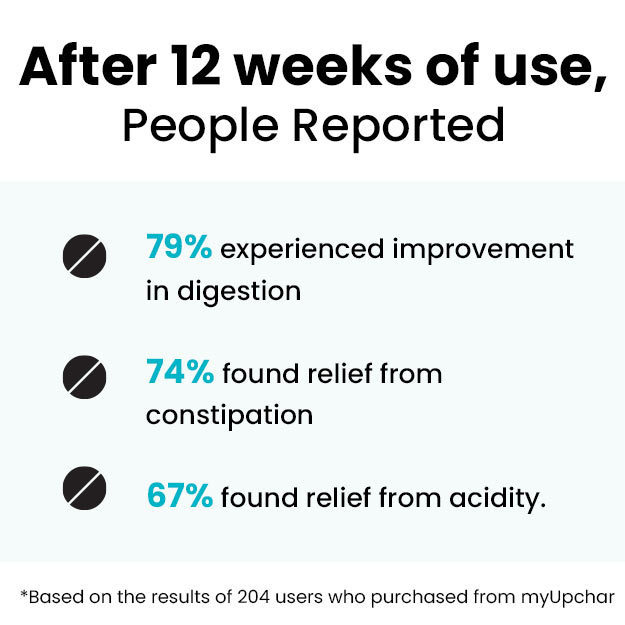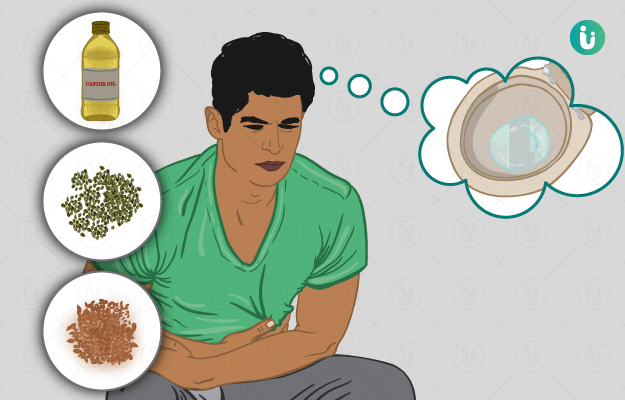Constipation, called vibandha in Ayurveda, is characterised by infrequent bowel movements, which is mostly accompanied by hard stools. It occurs due to the vitiation of vata dosha, which causes the slow accumulation of ama (toxins) and purisha (faecal matter) in the intestine. Kapha and pitta dosha may also be involved in some instances.
Ayurveda describes various treatments that can help remove the accumulated ama and purisha (faeces) from the body and relieve constipation. Ayurvedic treatments for constipation include snehana (oleation), swedana (sudation or sweat therapy), virechana (purgation) and basti (enema). The herbs and medicines used in Ayurveda for the management of constipation include haritaki (chebulic myrobalan), vibhitaki (belleric myrobalan), eranda (castor), dashmoola kwatha, triphala churna, haritaki khanda, vaishvanara churna, hingutriguna taila, abhayarishta and ichhabhedi rasa.
- Ayurvedic view of constipation
- Ayurvedic treatment for constipation
- Ayurvedic herbs and medicines for constipation
- Dietary and lifestyle changes for constipation patient as per ayurveda
- How effective are ayurvedic medicines and treatments for constipation
- Side effects and risks of ayurvedic medicine and treatments for constipation
- Takeaway
Ayurvedic view of constipation
Vitiation of doshas causes the accumulation of ama or purisha, leading to constipation. Although vata aggravation is the most common reason for constipation, it can also be caused by the aggravation of kapha and pitta doshas. Aggravation of the doshas can occur due to improper diet, inadequate intake of liquids, lack of exercise, suppression of natural urges like clearing the bowel, lack of exercise, laxative abuse, sudden changes in daily routine, travelling, fissures and haemorrhoids, nerve damage and problems of the colon and rectum. When constipation occurs due to accumulation of ama, the following symptoms are observed:
- Thirst
- Abdominal pain
- Burning sensation in the head
- Suppression of eructation
- A runny nose
Following symptoms are observed if the constipation is caused due to accumulation of purisha:
The exact treatment depends on the cause, duration and severity of constipation, but dietary and lifestyle changes are of significant importance in the management and prevention of constipation.
Ayurvedic treatment for constipation
- Snehana
- In senhana, oils infused with the properties of herbs are used to perform oil massage on the body. The selection of herbs depends on the aggravated dosha involved in a typical condition.
- Application of pressure during the massage also varies based on one's dominant dosha. Individuals with a vata constitution should be given a gentle and soft massage; those with a pitta constitution should be given a moderate massage, and those with a kapha constitution should be given a deep tissue massage.
- Snehana helps in clearing ama from the body and is thus useful in the management of constipation.
- Swedana
- Swedana includes the application of various methods to induce sweating. It dislodges and liquefies toxins and widens the circulatory channels. This enables the ama to flow from various tissues back into the gastrointestinal tract, from where it can be easily eliminated.
- The various methods used for inducing sweating are- tapa (fomentation), in which a heated cloth, metal object or warm hands are placed on the body; upanaha, in which a hot poultice consisting of various herbs or their combinations is used; ushma, in which warm steam is used; and dhara, in which medicated warm liquid is poured over the body.
- Virechana
- It is a simple panchakarma (five therapies) technique, employing the use of various herbs for inducing purgation, thereby, clearing the bowel.
- The commonly used herbs for virechana are aloe vera, rhubarb and senna. However, other herbs can be used depending on the clinical condition of the individual.
- Virechana helps in removal of excess pitta from the gall bladder, liver and small intestine. It is also useful in many kapha diseases but is not recommended for vata diseases.
- It is effective in relieving constipation by eliminating ama and balancing the aggravated doshas.
- Basti
- It is an Ayurvedic enema therapy, which is primarily used when vata is the predominantly deranged dosha.
- Conventional enemas only cleanse the rectum and the last 8-10 inches of the colon; however, basti acts on the entire colon, rectum and anus and not only cleans the bowel but also eliminates ama and treats constipation.
- In addition to constipation, it is also useful in the management of sciatica, arthritis, lower back pain, mental conditions like epilepsy and Alzheimer’s disease.
Ayurvedic herbs and medicines for constipation
Ayurvedic herbs for constipation
- Haritaki
- Haritaki acts on the nervous, digestive, respiratory, excretory, and female reproductive systems and has rejuvenating, laxative (regulates bowel movements), expectorant (expels phlegm), anthelmintic and astringent (constricts body tissues) properties.
- It helps in the management of numerous disorders including cough, asthma, abdominal distension, skin itching, oedema, indigestion and constipation.
- It can be used in the form of a decoction, paste, gargle and powder.
- Vibhitaki
- Vibhitaki acts on the digestive, nervous, respiratory and excretory systems and has anthelmintic, antiseptic, laxative, rejuvenating and astringent properties.
- It alleviates the aggravated doshas, acts as a cleansing tonic, and helps in the elimination of ama from the body. Thus, being effective in the management of constipation.
- Vibhitaki helps combat allergies when used in combination with turmeric and, thus, it is effective in the management of skin diseases and asthma. It prevents vomiting, especially, during pregnancy and is useful in reducing inflammation.
- Eranda
- Eranda seed oil is prescribed for the management of various rheumatic diseases. It is also used as a purgative in its unrefined form. Refined eranda oil is less effective than the unrefined alternative.
- It is helpful in the management of multiple disorders, which include colic pain, arthritis, bronchitis, stones, asthma and constipation.
- Eranda oil is one of the most popular and effective medicine for constipation. It is applied as an enema to remove the impacted faeces.
Ayurvedic medicines for constipation
- Dashmoola kwatha
- Dashmoola kwatha is prepared from the roots of 10 herbs, which include shyonaka (Indian caper), bilwa (golden apple), gambhari (beechwood), prishniparni (kalshi), brihati (bari katheri), kantakari (chhoti katheri), agnimantha (headache tree), and gokshura (small caltrops).
- It is one of the most commonly used medicines that destroy elevated vata and is hence useful for improving constipation.
- Other diseases that can be treated with this medicine are asthma, fistula and cough caused due to vata. It is also effective in treating bone diseases like osteoarthritis and rheumatoid arthritis.
- Triphala churna
- Triphala churna is a well-recognised and effective Ayurvedic preparation consisting of the powder of three fruits, which include amalaki (Indian gooseberry), vibhitaki and haritaki.
- It primarily acts on the gastrointestinal tract and has rejuvenating, laxative, anti-inflammatory, anti-ageing, immunomodulatory, antibacterial, chemoprotective, antidiabetic and anticancer properties.
- It promotes proper digestion and absorption of the food and improves blood circulation, which helps in the elimination of ama and adequate cleansing of the bowel. It also reduces cholesterol and increases the production of red blood cells and haemoglobin.
- Haritaki khanda
- This fromulation is preaped from ajowan (caraway) seeds, trikatu (a combination of the three acrids – pippali [long pepper], shunthi [dried ginger] and maricha [pepper]), dill seeds, coriander, clove, senna leaves and haritaki.
- It has antacid, laxative, expectorant and carminative properties. It is indicated in the treatment of constipation, hyperacidity and cough.
- Vaishvanara churna
- Vaishvanara churna consists of ingredients such as rock salt, ajowan, shunthi and haritaki.
- Rock salt is traditionally used as a laxative, antiulcer, antiseptic and aphrodisiac. Other ingredients of this preparation are also well-known for their laxative, carminative and digestive properties. Thus, vaishvanara churna is an effective and potent medicine for the management of constipation.
- Hingutriguna taila
- This medicine consists of asafoetida, rock salt, castor oil and garlic.
- It has laxative, anthelmintic, appetising, digestive and anti-inflammatory properties. Thus, it can be used in the management of pain, swelling and inflammation of the joints; intestinal colic; and chronic constipation.
- Abhayarishta
- Abhayarishta is an Ayurvedic formulation consisting of a fermented mixture of vidanga (false black pepper), haritaki, draksha (grapes), coriander seeds, indravaruni (bitter apple) roots, pippali roots, jaypal (croton) root and other herbal ingredients.
- It helps treat constipation by eliminating ama from the body. It is also effective in the treatment of haemorrhoids and oedema. Abhayarishta improves agnimandya (reduced digestive fire), enhances metabolism, and helps burn off excess fat.
- Icchabhedi rasa
- Icchabhedi rasa consists of shuddha gandhak (purified brimstone), shuddha parad (purified mercury), shuddha tankana (purified borax), haritaki, shunthi, shuddha jaypal seeds and lime juice.
- It has deepana (appetising), pachana (digestive) and purgative properties and is primarily used in the treatment of constipation.
- Icchabhedi rasa is also used in the management of indigestion and stomach ache. Extreme flatulence and constipation caused by fatty substances can be managed by using icchabhedi rasa.
As treatments vary according to numerous factors and an individual’s prakriti (constitution), consult a qualified Ayurvedic doctor for the appropriate medications and treatments for your specific complaints.
Dietary and lifestyle changes for constipation patient as per ayurveda
Do’s
- Include green vegetables, carrot, radish, papaya, cucumber, garlic, cabbage, bitter gourd and bottle gourd in your diet.
- Consume cereals like wheat and old rice.
- Add pulses like mudga (green gram) and arahara (pigeon pea) in your diet.
- Drink plenty of water. (Read more: How many glasses of water to drink in a day)
- Exercise regularly.
- Improve posture.
Don’ts
- Do not consume pulses like udada (black gram) and peas.
- Do not eat spicy food and junk food in your diet.
- Avoid the suppression of natural urges.
- Avoid incompatible food combinations such as fish and milk.
- Avoid excessive sexual intercourse.
How effective are ayurvedic medicines and treatments for constipation
A study reporting the treatment of severe constipation in a 4-year-old boy with Hirschsprung disease indicated the effectiveness of snehana, swedana, basti and virechana in the management of constipation. Hirschsprung disease (HSCR) is a congenital disease with constipation as its main symptom. This type of constipation cannot be managed with most conventional oral drugs and tends to rebound even after treatment. Various Ayurvedic medicines like brihatvatachintamani rasa and drakshavaleha were also given along with the Ayurvedic therapies. A significant symptomatic improvement was noted by the end of the treatment. The study concluded that Ayurvedic treatment is effective in providing relief from HSCR constipation along with improving the overall health.
Side effects and risks of ayurvedic medicine and treatments for constipation
Although Ayurvedic therapies involve a holistic approach toward treatment, improper and inappropriate use may lead to some side effects. Thus, an Ayurvedic physician should always be consulted before using any herb, medicine or treatment as some treatments may not be suitable for the individual. For example, virechana should not be used in individuals with poor digestion, rectal ulcers and diarrhoea, and it should also be avoided during menstruation, pregnancy, weakness and in the elderly and children. Basti is not recommended in babies and should also be avoided in individuals with diarrhoea, rectal bleeding and colon cancer. Haritaki should be taken with caution during pregnancy, dehydration and severe exhaustion. Ichhabhedi rasa should not be used in individuals with chronic constipation.
Takeaway
Constipation is one of the most common problems that may be an independent condition or caused due to an underlying disease. Conventional therapies for the prevention and treatment of constipation do not provide satisfactory results and may have some side effects. Many published clinical studies report the effectiveness and safety of Ayurvedic herbs in case of constipation. An Ayurvedic physician can provide proper treatment for each individual based on their clinical condition.
Find Ayurvedic Doctor in cities
Doctors for Ayurvedic medicine, treatment and remedies for Constipation

Dr. Ayush Bansal
Ayurveda
2 Years of Experience

Dr. Megha Sugandh
Ayurveda
6 Years of Experience

Dr. Nadeem
Ayurveda
3 Years of Experience

Dr.Ashok Pipaliya
Ayurveda
12 Years of Experience
References
- Bhushan Patwardhan. Bridging Ayurveda with evidence-based scientific approaches in medicine. EPMA J. 2014; 5(1): 19, PMID: 25395997.
- National Institute of Indian Medical Heritage (NIIMH). Ānāha (Baddhakoṣtha). Central Council for Research in Ayurvedic Sciences (CCRAS); Ministry of AYUSH, Government of India.
- Prof. G.S. Lavekar. Classical Ayurvedic Prescriptions for common Diseases . Central Council for Research in Ayurveda and Siddha. Department of AYUSH, Ministry of Health & Family Welfare, Government of India.
- Vaidya Bhagwan Dash. Handbook of Ayurveda .Concept Publishing Company (1987) : Delhi, India.
- National Health Portal [Internet] India; Constipation (Vibandha)
- The Indian Medical Practitioners' Co- operative Pharmacy and stores Ltd. Vaidya Yoga Ratnavali . Adyar, Madras-20.
- Vaidya Panchanan Gangadhar Shastri Gune. Ayurvediya Aushadhi Guna Dharma Shastra. Chaukhamba Sanskrit Pratishthan, 2017.
- Christine Tara Peterson, Kate Denniston, Deepak Chopra. Therapeutic Uses of Triphala in Ayurvedic Medicine. J Altern Complement Med. 2017 Aug 1; 23(8): 607–614, PMID: 28696777.
- Bagepalli Srinivas Ashok Kumar et al. Evaluation of Laxative Activity of Vaishvanara Churna: An Ayurvedic Formulation. Advances in Bioscience & Clinical Medicine, Vol.02 No.02.
- Lal UR et al. Chemical changes during fermentation of Abhayarishta and its standardization by HPLC-DAD.. Nat Prod Commun. 2010 Apr;5(4):575-9, PMID: 20433076.
- National Institute of Indian Medical Heritage (NIIMH). Ādhmāna. Central Council for Research in Ayurvedic Sciences (CCRAS); Ministry of AYUSH, Government of India.
- Sarvesh Kumar Singh, Kshipra Rajoria. Ayurvedic management of chronic constipation in Hirschsprung disease – A case study. J Ayurveda Integr Med. 2018 Apr-Jun; 9(2): 131–135, PMID: 29853328.






















